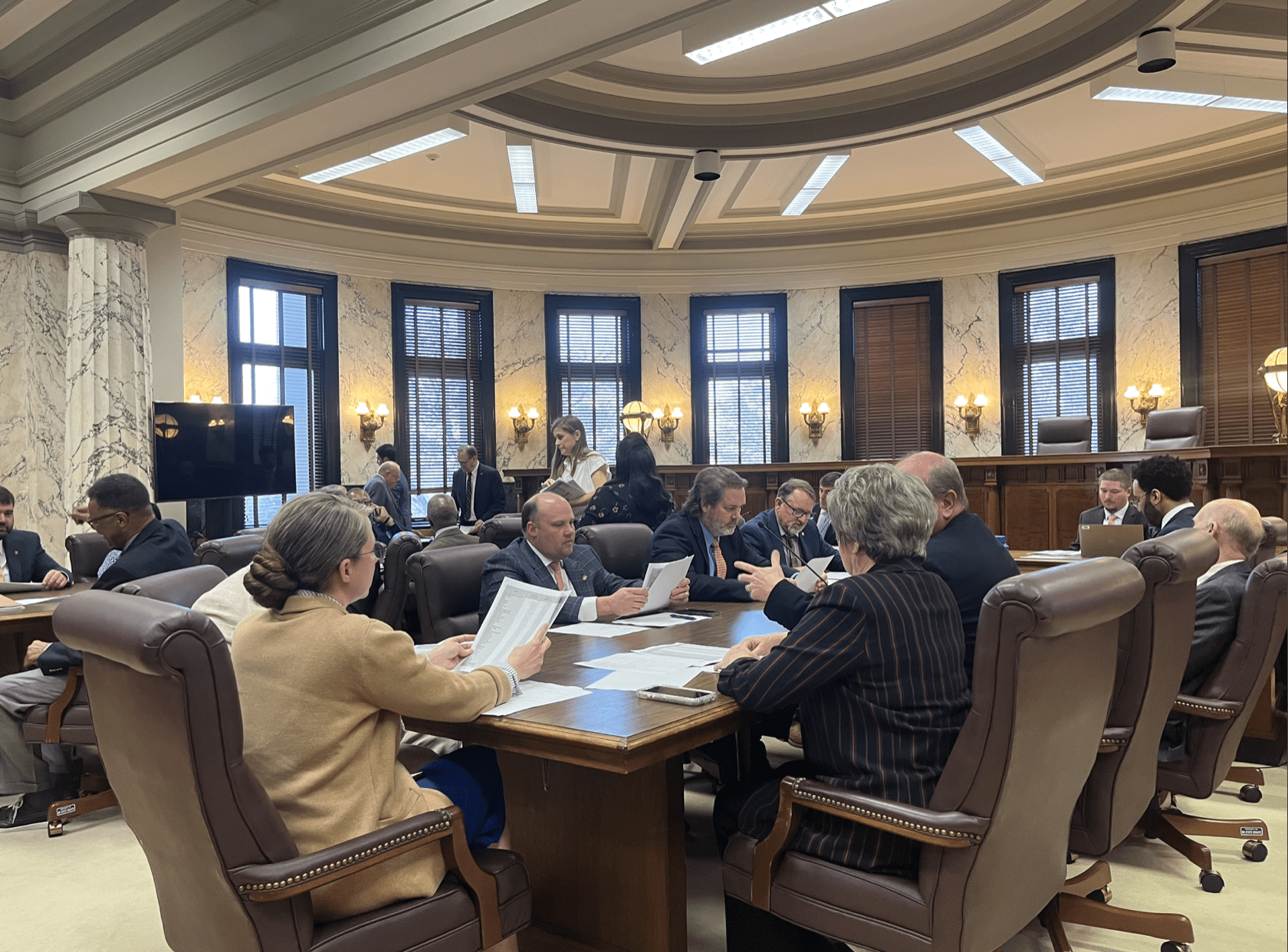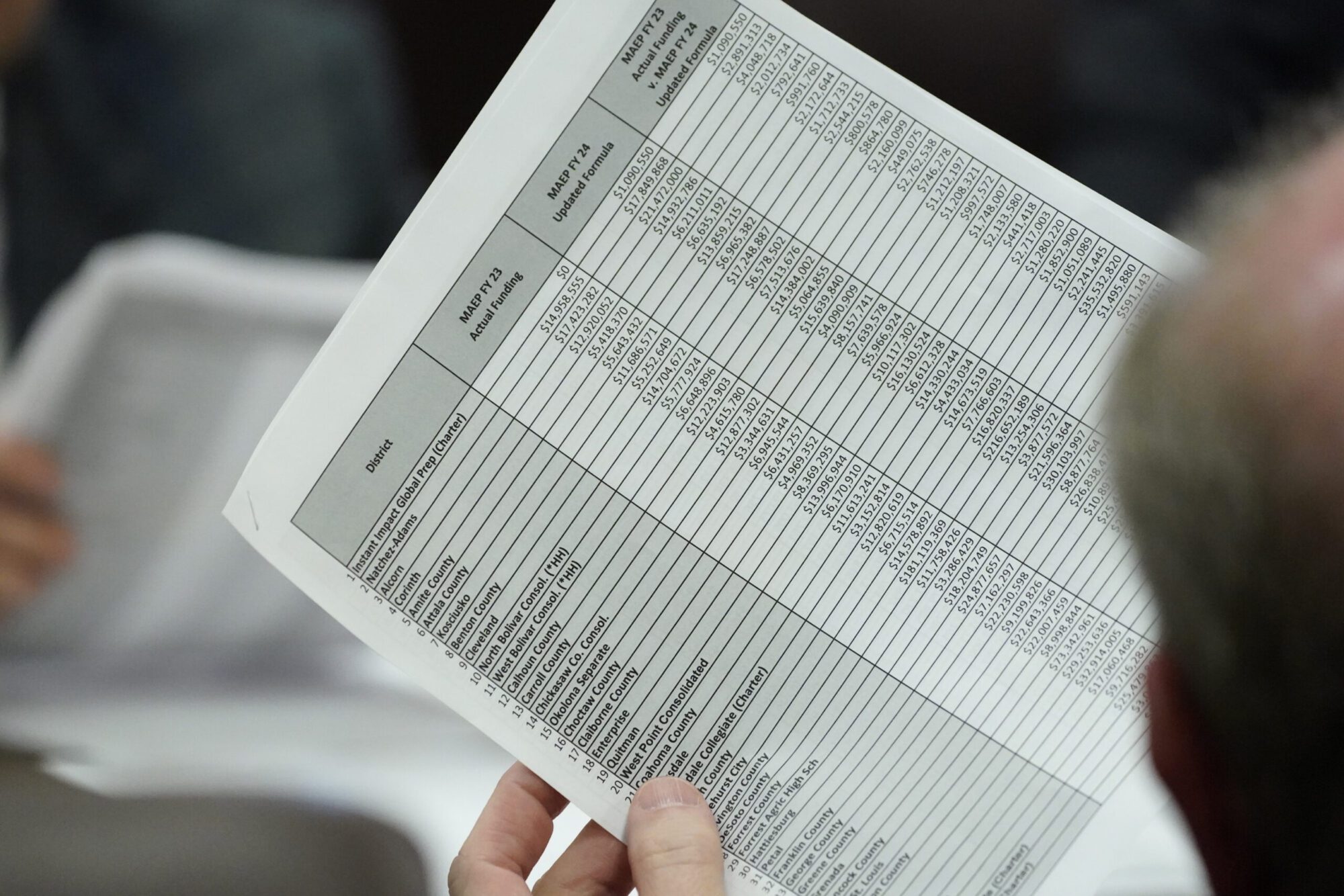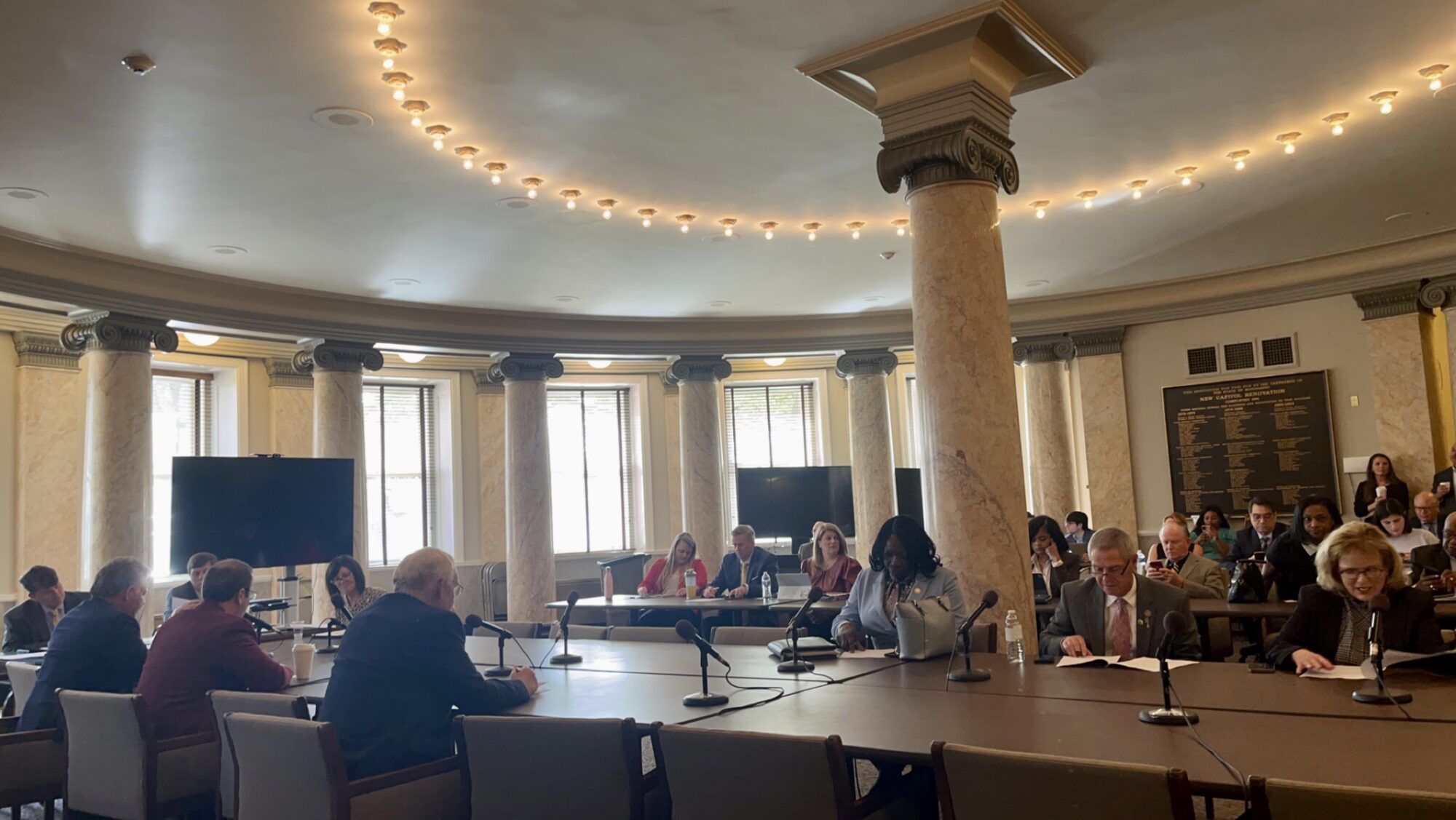
Mississippi House Medicaid Committee meets on February 28, 2023, to consider postpartum Medicaid legislation.
Mississippi now joins every other state in the nation with a postpartum extension, up to 12 months for mothers on Medicaid.
UPDATE March 7th: The House passes Senate Bill 2212 with little debate.
The Mississippi House took up SB 2212 on the floor on Tuesday, prior to Wednesday’s floor deadline. The bill was passed with very little conversation and no debate.
The bill passed by a vote of 89 to 29 with bipartisan support.
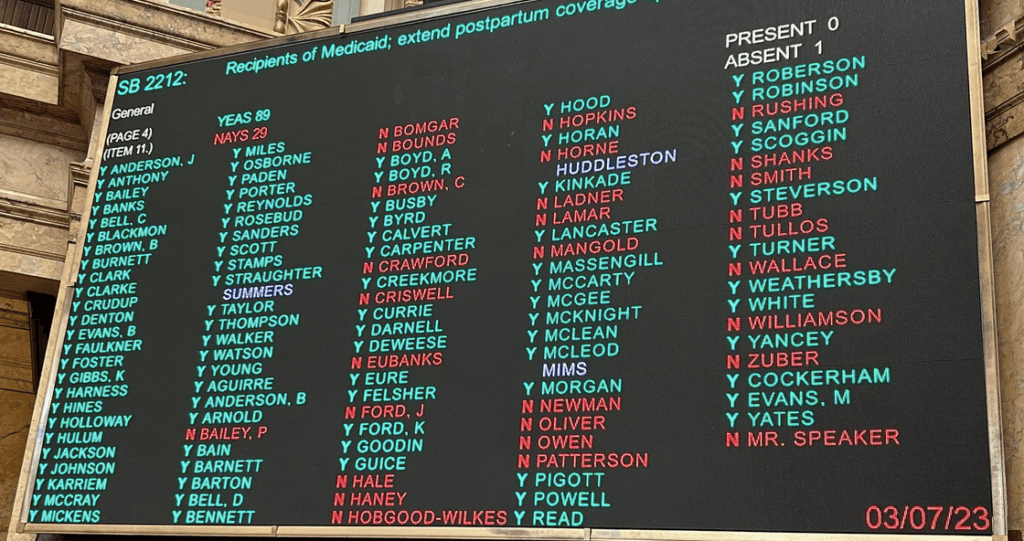
“I truly believe that it is the right thing to do for both babies and women. I don’t believe that issues surrounding the health of babies, both born and unborn, or women’s health should ever be political chess pieces,” said Rep. Missy McGee (R), who presented the bill on the floor.
She said the bill is a result of a legislative effort to show commitment to life for babies and providing care for women. She added that women who suffer from mental or physical challenges after birth, often struggle to care for their children during that period.
Mississippi was the last state not to pass the extension to 12 months on postpartum care, until today. Wyoming was the second to last state to do so and passed it last year.
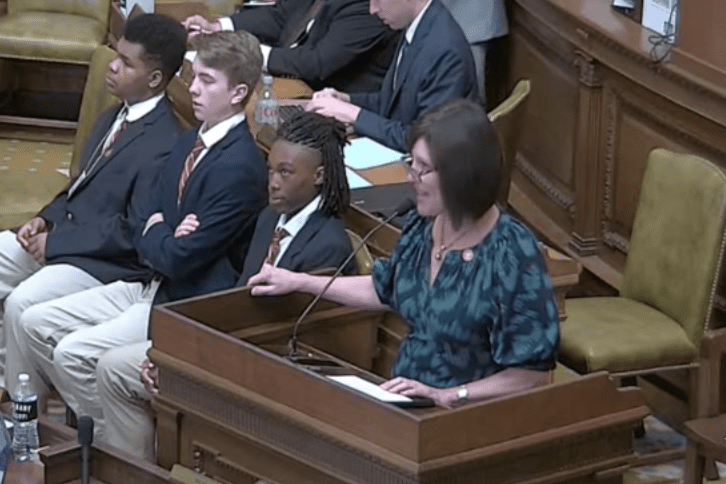
McGee reiterated that SB 2212 does not expand Medicaid to anyone who does not already receive coverage through the division. Current applicable individuals for Medicaid must be within the 194th percent of the federal poverty level. For a family of one that is an income of just over $26,000 and for a family of two that level is set at approximately $35,000.
“The Mississippi Senate, particularly Senator Kevin Blackwell and Senator Nicole Boyd, has championed legislation to extend postpartum care for mothers from 60 days to 12 months as most other states have done. This hard work has paid off. We appreciate the House passing Senate Bill 2212. When we have healthy mothers, we have healthy babies—a great example of post-Dobbs, pro-life policy,” said Lt. Governor Delbert Hosemann.
Author of the legislation and Chairman of Senate Medicaid, Sen. Kevin Blackwell (R) has been a champion of extending this care since 2021.
“Today was a great win for the women and children in MS. For years MS has led the nation in maternal and infant mortality. Now mothers on Medicaid will now have access to postpartum healthcare for up to 12 months. I want to thank the many healthcare practitioners as well as many of my legislative colleagues who advocated for this important legislation. MS has taken the lead in protecting the unborn, children, and now mothers,” said Blackwell.
Update March 16:
After moving through the Legislature, the bill was signed by Governor Tate Reeves and made law.
Reeves issued the following statement after signing the bill:
“Last year, Mississippi led the way to the single greatest conservative victory in a generation – the overturning of Roe v. Wade. This watershed moment in history was a monumental victory that will save the lives of millions of babies for generations.
But while the overturning of Roe is something every pro-life American can be proud of, winning a court case was never our true objective. Rather, it was about building a culture of life throughout our state and our nation. It was about saving lives and it was about tipping the scales toward life.
Today in Mississippi, we have turned our attention to furthering our new pro-life agenda, and delivering the support moms and babies need. As I’ve said before, our new pro-life agenda will not be easy, and it will not be free. And there’s little doubt that we’re going to face some difficult choices along the way. But if there’s one thing we should all agree on, it’s that we must do everything in our power to lower barriers for expectant moms to bring new babies into the world and to choose life.
Today, Mississippi will take another step to accomplish that goal. Since the very early days of my term as Governor, CMS has required 12 months of postpartum Medicaid coverage for all those expectant moms enrolled in the program. In fact, in Mississippi, we have had presumed eligibility for Medicaid for those moms for much longer than that. Senate Bill 2212 becomes law today and will continue that 12 months of postpartum Medicaid coverage for Mississippi’s neediest moms, all without adding additional people to Medicaid’s rolls.
When Mississippi started the fight to overturn Roe, pro-abortion advocates never gave us a chance at succeeding. Now, they’re counting us out when it comes to delivering the support moms need to raise healthy babies. Mississippi will once again prove the pro-abortion advocates wrong – but only if we don’t quit our pro-life fight now that Roe has been struck down.
I’ve been against Medicaid expansion since it was first proposed by Barack Obama. I still am. And, as what many would call the leading advocate (along with Speaker Gunn) fighting against Obamacare expansion, I have plenty of scars to show for it. In 2019, the media and politicians loved to attack me for saying we don’t need to put hundreds of thousands more Mississippians on Medicaid. They’ll do it again this election year. That’s usually proof that you’re on the right track. They’ll still find a way to attack me for this, because they hate conservatives.
I believe continuing to offer care for new moms for up to 12 months after the birth of their baby is the right thing to do. This is one more thing that we can do to tip the scales in favor of life. And that has to be our priority. It is for those reasons that I signed SB2212 (continuing 12 months of postpartum care for new moms) into law today.”
Previous:
On Tuesday, the Mississippi House Medicaid Committee passed Senate Bill 2212 out to the floor for consideration by the full chamber.
The legislation would “authorize and direct the Division of Medicaid to provide 12 months of continuous coverage postpartum for any individual who qualifies for Medicaid as a pregnant woman to the extent allowable under federal law.”
Prior to taking up the legislation, Chairman of the House Medicaid Committee, State Representative Joey Hood (R), said that he along with Speaker of the House Philip Gunn (R) requested information regarding postpartum coverage. The Director of the Mississippi Division of Medicaid provided them with a letter on the matter on Monday.
Speaker Gunn, who was previously against the legislation, told WTVA 9 News on Monday that based on the letter, they no longer consider the particular legislation expansion.
“It’s my understanding that they have now decided that it’s not expansion and they are for it,” Gunn said. “So, we will take that and consider that and how to move forward.”
In taking the matter up in committee, Rep. Hood said he wanted to get the bill on the calendar in a “clean form” as they work it through the process.
The Division of Medicaid reported to lawmakers that the estimated gross cost in Fiscal Year 2024 would be $32 million, with $7.1 million coming from the state’s share. The agency noted that it can finance a 12-month postpartum coverage duration over the long term “with a relatively minimal impact on the Medicaid budget.” If cost does become a concern, the agency says it can recommend adjustments to other medical spending.
You can read the full letter below.
State Representative Missy McGee (R) said that this legislative effort is something they have worked on for several years now. The state Senate attempted to pass similar legislation in the 2022 session, but it failed in the House. Senators passed it this session by a vote of 41-11.
McGee said now in this post-Dobbs era, the change will strengthen the state’s social safety net and modernize the approach for helping the state’s most vulnerable citizens.
“I’ve often heard the statement that Mississippi takes pride in being the safest state for a baby to be born,” Rep. McGee said. “This bill demonstrates that we, as policymakers, also recognize that our commitment to life cannot end once a baby takes his or first breath, that we also care for that baby and his mother outside of the womb.”
Rep. McGee said the bill also provides a very important cost-effective approach for delivering care, noting that the bill does not expand Medicaid eligibility to any person that is currently not covered. That has been the chief concern among Republicans who have opposed the measure as it has, until now, been viewed as Medicaid expansion versus an extension.
The Pine Belt lawmakers said the legislation “simply authorizes and directs the Division of Medicaid to provide twelve months of continuous coverage postpartum for any individual who already qualifies for Medicaid coverage.”
Some of the committee members voiced their frustration with the process the bill has taken. While those legislators support the legislation, they expressed irritation at the timing of the policy being taken up in committee.
State Representative Omeria Scott (D) said she is pleased that the postpartum legislation is being taken up for consideration, adding that the members of the Mississippi Legislative Black Caucus have advocated for this program “all this time.”
“I want to say to you gentleman that I am glad that this legislation is before us, for whatever reason. If it’s political, then you know, we all got to sit at the judgment seat, don’t we gentleman?” Scott said. “So, whatever it is, it is time for us to do something for women in this state.”
Rep. Scott said hopefully this is an awakening and that lawmakers will move forward not only in providing postpartum care for women, but in Medicaid expansion for these same women who work 18 hours at Walmart and 27 hours at a convenience store and do not have insurance.
State Representative John Hines (D) said almost twenty percent of Mississippi’s population lives in poverty. He said it is a shame that we have to wait until the “political winds” turn for this issue to be taken up, a not-so-veiled reference to Governor Tate Reeves (R) change of tone when he announced Sunday that he would sign the legislation if it passed the Legislature.
“This is a moment that we should be celebrating the lives of women who actually bring life, but yet it is a political ploy in this process,” Hines said. “I’m supporting this legislation because it’s the right thing to do, but I am appalled that the leadership of this state has waited until their backs are against the wall and they are in trouble before they decide to do the right thing by taking care of women in this state.”
“Let’s pass this piece of legislation, let’s get it out of this committee and let’s do the right thing by women in this state,” Hines continued.
The 18-member House committee passed the legislation on a voice vote and moved it to the House floor for consideration.
But not all were pleased with the developments over the last few days at the Capitol.
State Representative Steve Hopkins (R) said the legislation is “nothing more than the expansion of Obamacare.”
“The vote on the floor of the House and Senate on this bill will show the people of Mississippi just how few platform Republicans there are in the Legislature,” Hopkins said. “Our Legislature is being controlled by Democrats and Romney Republicans.”
Dr. Jameson Taylor, the director of research and legislative affairs for the American Family Association, wrote a column last month in opposition to the Medicaid extension for postpartum care. By authorizing “postpartum” Medicaid coverage, Taylor wrote that the Mississippi Legislature would go a long way toward “locking in this shadow expansion of Medicaid.”
Taylor said on Tuesday that Medicaid currently provides 60 days of postpartum coverage because the actual definition of the postpartum period is 42 days.
“There is no such thing as a 12-month-long postpartum period, which means this bill is based on a lie. Also, these are working-age, able-bodied adults we are talking about. They can get Obamacare silver plan coverage by merely working a minimum wage job,” Dr. Taylor argued. “In passing this, Republicans are walking headlong into the trap of welfare expansion and socialized medicine set by the Biden administration.”
Magnolia Tribune will continue to follow this bill as it moves to the floor for debate by the full House body.




